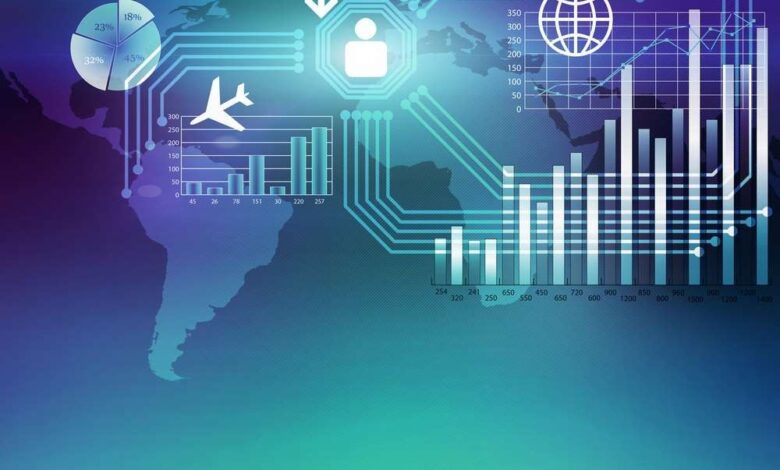
The Growth of the Digital Economy in Spain has been transformative, reshaping industries and creating opportunities across the nation. With advancements in technology, widespread internet connectivity, and a culture of innovation, Spain has emerged as a digital powerhouse. This rapid evolution impacts sectors ranging from e-commerce and fintech to education and healthcare, positioning the country as a key player in the global digital landscape.
This article delves into the factors fueling the Growth of the Digital Economy in Spain, highlighting key trends, government initiatives, and challenges. By embracing digital transformation, Spain is fostering economic resilience, driving innovation, and enhancing the quality of life for its citizens.
Read More: The Growth of the Digital Economy in Spain
The Role of Technology in Spain’s Digital Economy
The integration of technology is central to the Growth of the Digital Economy in Spain, driving efficiency and innovation.
Technologies like artificial intelligence, blockchain, and cloud computing are reshaping industries, enabling businesses to deliver smarter and more efficient solutions. Spanish companies are leveraging these advancements to remain competitive in a global market.
The Impact of High-Speed Internet on the Digital Economy
Connectivity plays a pivotal role in the Growth of the Digital Economy in Spain, facilitating digital transformation across sectors.
The expansion of fiber-optic networks and 5G technology ensures seamless connectivity. This infrastructure supports remote work, e-commerce, and digital education, forming the backbone of Spain’s thriving digital economy.
E-Commerce and the Digital Marketplace
E-commerce illustrates the dynamic Growth of the Digital Economy in Spain, redefining consumer behavior and business operations.
Online platforms like Amazon, Zara, and Glovo are revolutionizing retail. With the rise of digital payment systems and customer-centric innovations, Spain’s e-commerce sector continues to grow, contributing significantly to the economy.
The Rise of Fintech in Spain
The fintech industry exemplifies the innovative Growth of the Digital Economy in Spain, reshaping financial services.
Startups like Fintonic and Bnext are disrupting traditional banking by offering user-friendly, tech-driven solutions. These companies drive financial inclusion, enhance efficiency, and foster trust in digital platforms.
Digital Transformation in Education
Education highlights the societal impact of the Growth of the Digital Economy in Spain, creating new learning opportunities.
Virtual classrooms, e-learning platforms, and online certifications make education accessible to all. Initiatives like the Digital Spain 2025 plan further support integrating technology into Spain’s education system.
The Role of Startups in Driving the Digital Economy
Entrepreneurship underscores the innovative spirit behind the Growth of the Digital Economy in Spain, fostering creativity and growth.
Cities like Barcelona and Madrid serve as hubs for digital startups. Incubators, accelerators, and funding programs support entrepreneurs, driving technological advancements and creating job opportunities.
Government Initiatives Boosting Digital Growth
Policies and programs demonstrate how the Growth of the Digital Economy in Spain is supported by government actions.
Plans like España Digital 2025 aim to enhance connectivity, digital skills, and innovation. These initiatives ensure that Spain remains competitive in the evolving digital landscape.
The Impact of Remote Work on Spain’s Digital Economy
The shift to remote work emphasizes the flexibility enabled by the Growth of the Digital Economy in Spain.
Digital tools and cloud-based platforms allow employees to work from anywhere. This trend boosts productivity, attracts international talent, and strengthens Spain’s position as a desirable destination for remote workers.
Smart Cities and Urban Digital Transformation
Urban innovation reflects the broader Growth of the Digital Economy in Spain, enhancing the quality of urban living.
Smart city initiatives in Barcelona and Valencia use IoT and data analytics to optimize transportation, energy, and public services. These advancements drive sustainability and efficiency.
Healthcare Innovation in the Digital Economy
Healthcare showcases the life-changing potential of the Growth of the Digital Economy in Spain, improving patient outcomes.
Telemedicine, electronic health records, and AI-driven diagnostics streamline healthcare delivery. These digital tools ensure that Spain’s healthcare system remains modern and accessible to all.
The Role of Artificial Intelligence in Spain’s Economy
AI is a transformative force behind the Growth of the Digital Economy in Spain, driving automation and innovation.
From personalized marketing to predictive analytics, AI applications enhance business decision-making. Spain’s investment in AI research and development ensures its leadership in this transformative field.
Cybersecurity Challenges in the Digital Economy
The Growth of the Digital Economy in Spain also brings cybersecurity challenges, requiring robust solutions.
The rise in digital transactions and data usage necessitates advanced security measures. Spanish companies and governments are prioritizing cybersecurity to protect sensitive information and maintain trust.
Green Technology and Sustainability in the Digital Economy
Sustainability aligns with the Growth of the Digital Economy in Spain, promoting eco-friendly innovations.
Green technologies like energy-efficient data centers and smart grids reduce environmental impact. These efforts align with Spain’s commitment to achieving sustainable digital growth.
The Impact of Digital Inclusion on Economic Growth
Digital inclusion is essential for the equitable Growth of the Digital Economy in Spain, bridging socioeconomic gaps.
Efforts to improve digital literacy and access ensure that all citizens can participate in the digital economy. These initiatives foster social mobility and drive economic development.
The Entertainment Industry in the Digital Economy
Entertainment highlights the cultural dimension of the Growth of the Digital Economy in Spain, redefining media consumption.
Streaming platforms, gaming, and digital content creation thrive in Spain’s digital ecosystem. These industries contribute significantly to economic growth and cultural export.
The Role of Data Analytics in Spain’s Digital Economy
Data-driven decision-making underscores the analytical Growth of the Digital Economy in Spain, optimizing operations across industries.
Businesses leverage big data to analyze trends, predict consumer behavior, and enhance efficiency. These insights drive innovation and improve competitiveness.
Future Trends in Spain’s Digital Economy
Emerging trends shape the evolving Growth of the Digital Economy in Spain, creating new opportunities and challenges.
Technologies like quantum computing, edge computing, and blockchain promise to revolutionize industries. Spain’s proactive approach to innovation ensures it remains at the forefront of digital transformation.
Read More: The Growth of the Digital Economy in Spain
Conclusion
The Growth of the Digital Economy in Spain is reshaping the nation’s economic landscape, driving innovation, inclusivity, and resilience. With government support, technological advancements, and entrepreneurial spirit, Spain is capitalizing on the opportunities of the digital age.
As the digital economy continues to evolve, Spain is well-positioned to lead in global innovation. By addressing challenges and embracing future trends, the country ensures a prosperous and connected future for all its citizens.
FAQs
1. What drives the growth of the digital economy in Spain?
Technological advancements, government initiatives, and a thriving entrepreneurial ecosystem drive the digital economy’s growth in Spain.
2. How does e-commerce contribute to Spain’s digital economy?
E-commerce revolutionizes consumer behavior, enabling online transactions and expanding market reach, significantly boosting Spain’s economy.
3. What challenges exist in Spain’s digital economy?
Cybersecurity risks, digital inclusion gaps, and rapid technological changes are key challenges facing Spain’s digital economy.
4. How is the government supporting Spain’s digital transformation?
Government programs like España Digital 2025 promote connectivity, digital skills, and innovation to foster economic growth.
5. What future trends will shape Spain’s digital economy?
Technologies like AI, quantum computing, and blockchain will drive future growth and innovation in Spain’s digital economy.











